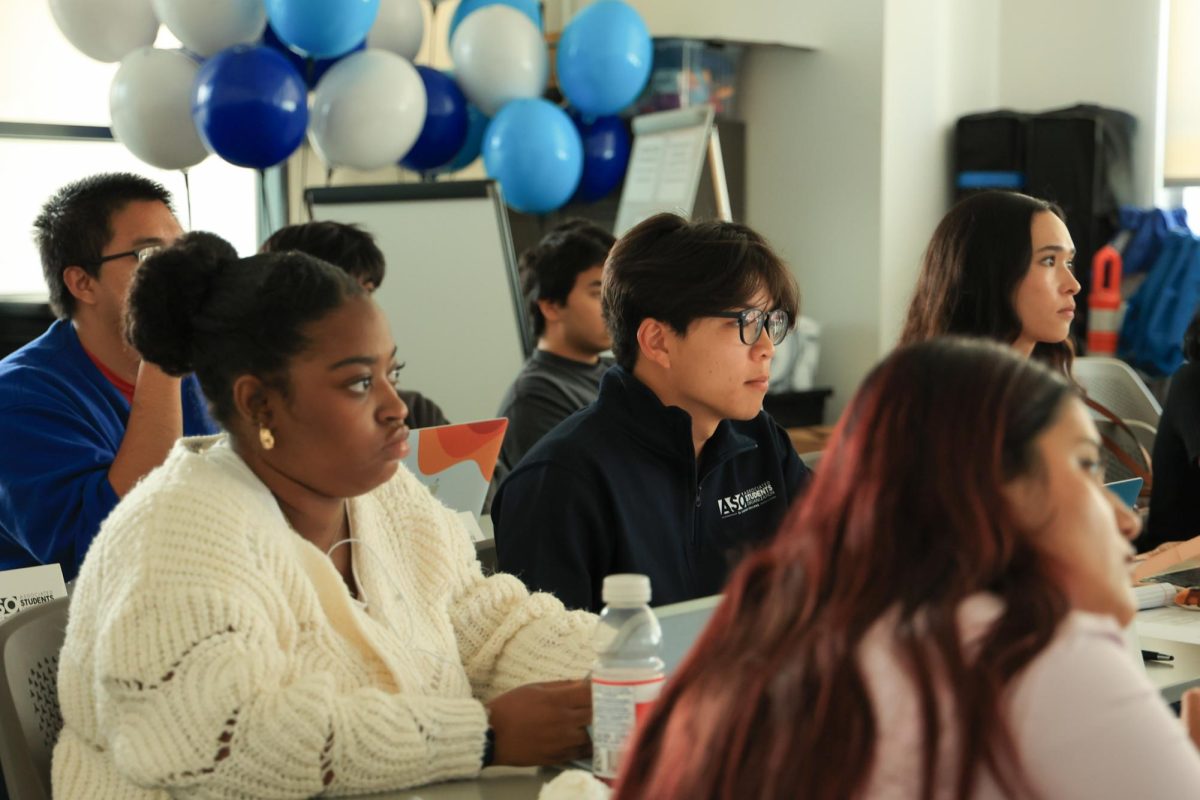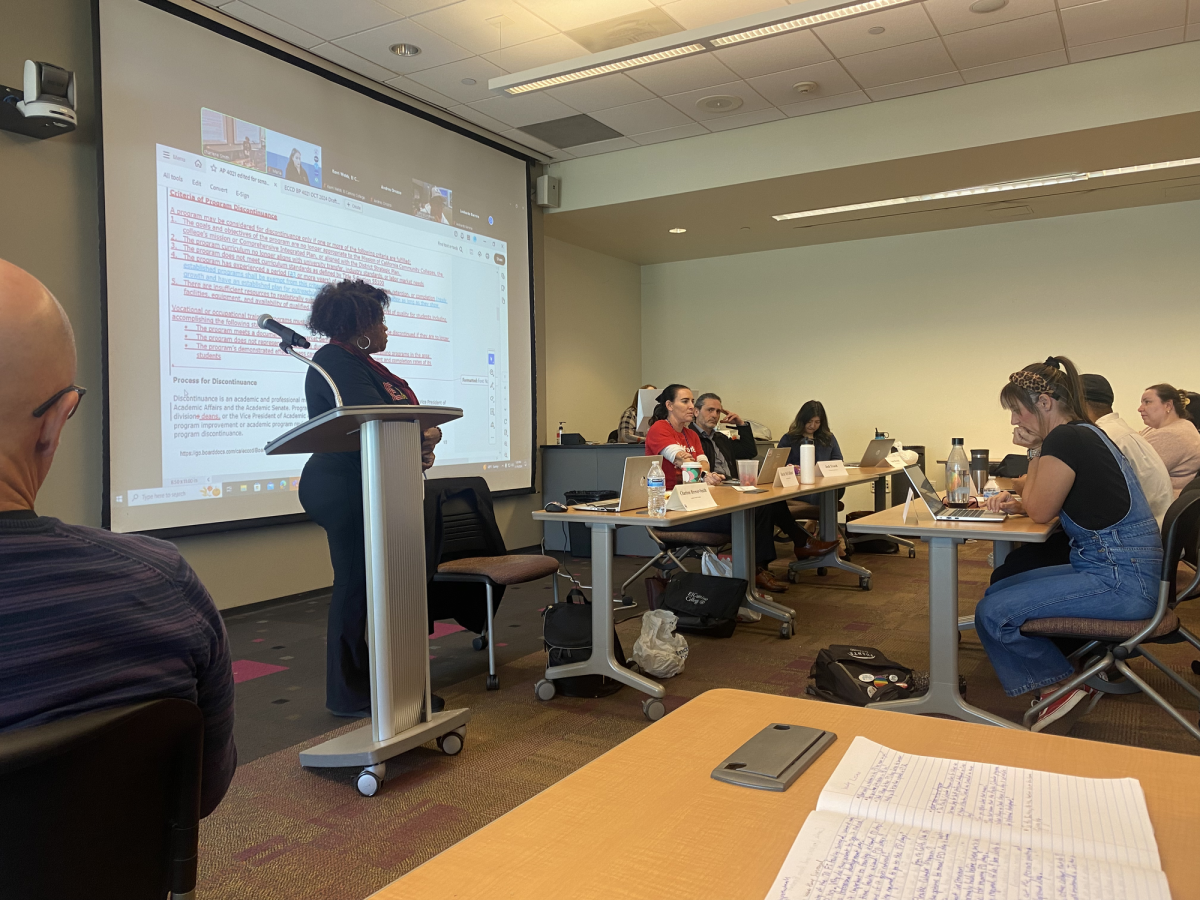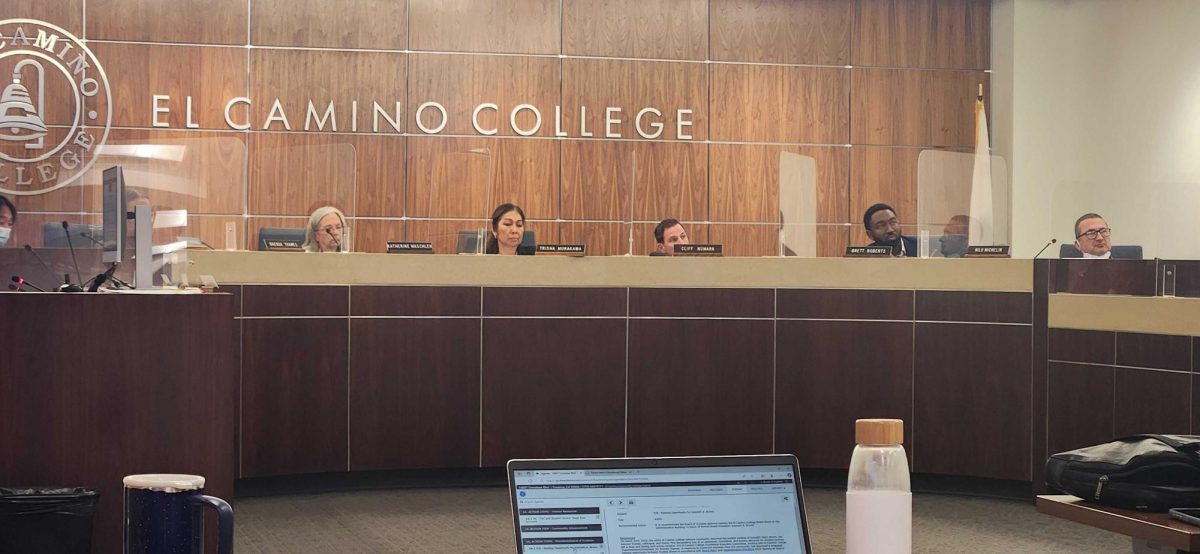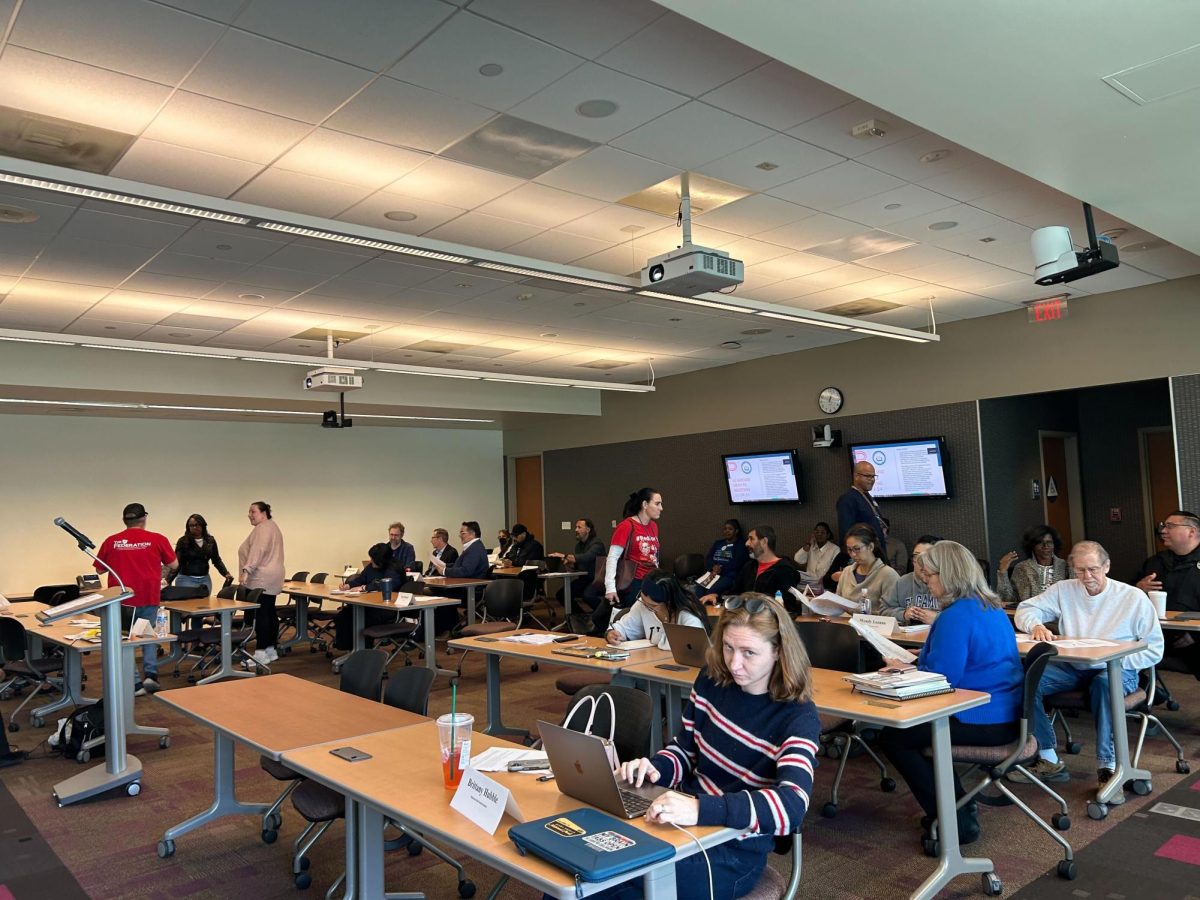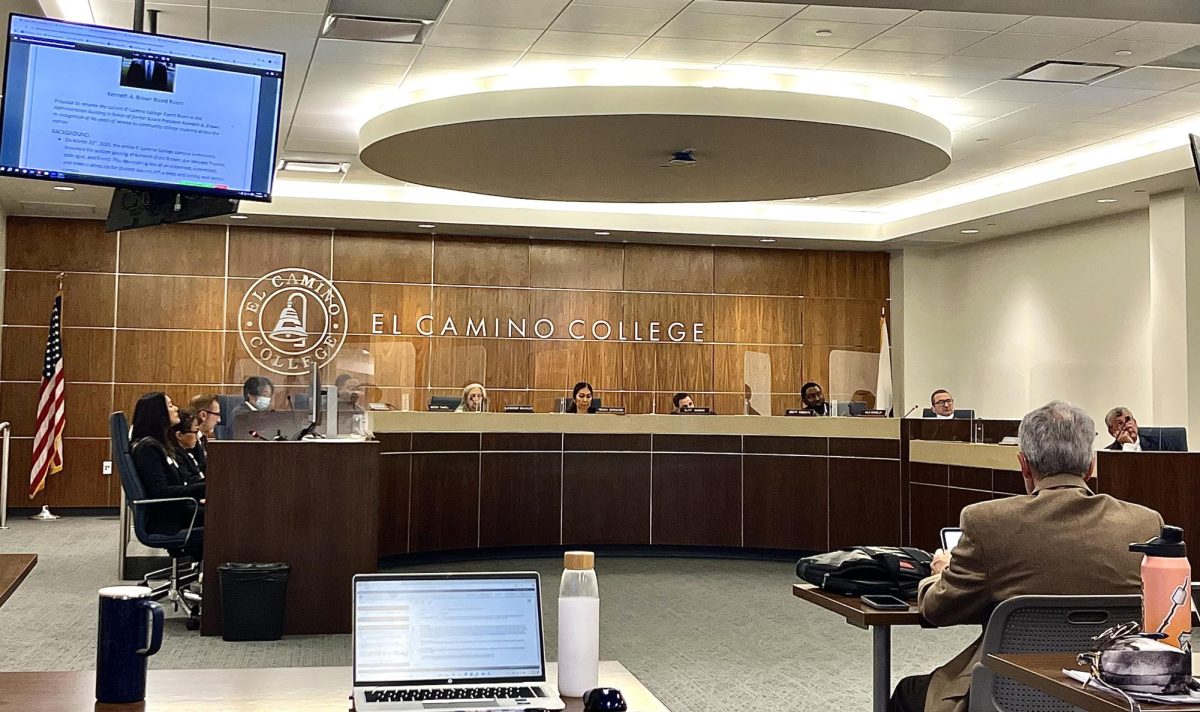Competing with able-bodied students for the elevators and the bathroom stalls and maneuvering though a constantly changing campus are some of the difficulties that disabled students and faculty face on campus, Earvie Vassar, president of the Future Disabled Leaders Association of El Camino, said.
“Sometimes I want use the bathroom and the handicapped stall is the only one being used,” Vassar said. “We complain, but it does us no good.”
Vassar even suggested implementing a program where only those with a key card can access the elevators. This might seem extreme to some, but most people are already ignoring the placard next to all elevators on campus that state that the elevator is for those who are disabled.
The layout of the construction zones change frequently as the fenced off areas morph regularly.
The problem is when these fenced areas leave only narrow passageways for people to pass through.
Vasser explained how the layout of the campus is “pretty good for those of us in (wheel)chairs” but that with the multiple construction sites, it is tricky getting around.
“Facilities works closely with us to inform us of the changes,” Dipte Patel, director of the Special Resource Center, said.
Patel said that wheelchair accessibility on campus is pretty good, but that the ongoing construction does cause an obstacle for some. For the students in wheelchairs it comes
down to “individual responsibility.” They need to be alert to the changes and find alternate routes to their classes, Patel said.
“Some classes in the Humanities Building are hard to get through because they are all so small and full of desks,” student Alan Truss said.
The rooms in one of the college’s newest buildings create a problem for students in wheelchairs because the desks are set up so close together that they do not leave room for the wheelchairs to get through.
This limit’s a students ability to maneuver the room, and leaves no seating options for them.
“The problem with the Humanities Building was brought out before classes started. But in this case, legally compliant does not mean functional,” Patel said. “We encourage the students to be advocates and work with the instructors and faculty to find a solution.”
“Sometimes it’s hard to get into some of the older building because they don’t have automatic doors or the button you press for them to open,” Vassar said.
Someone in a wheelchair would have a very difficult time opening the large heavy doors that most able-bodied people have a hard time opening themselves.
Many students walk past those who use wheelchairs without even a glance. Not all those who use a wheelchair need help with something or are looking for assistance.
However, they are also students and deserve respect and courtesy.
“Other students will ignore you,” Vassar said. “If you’re not on top of it, you’re pretty much left out of everything.”



